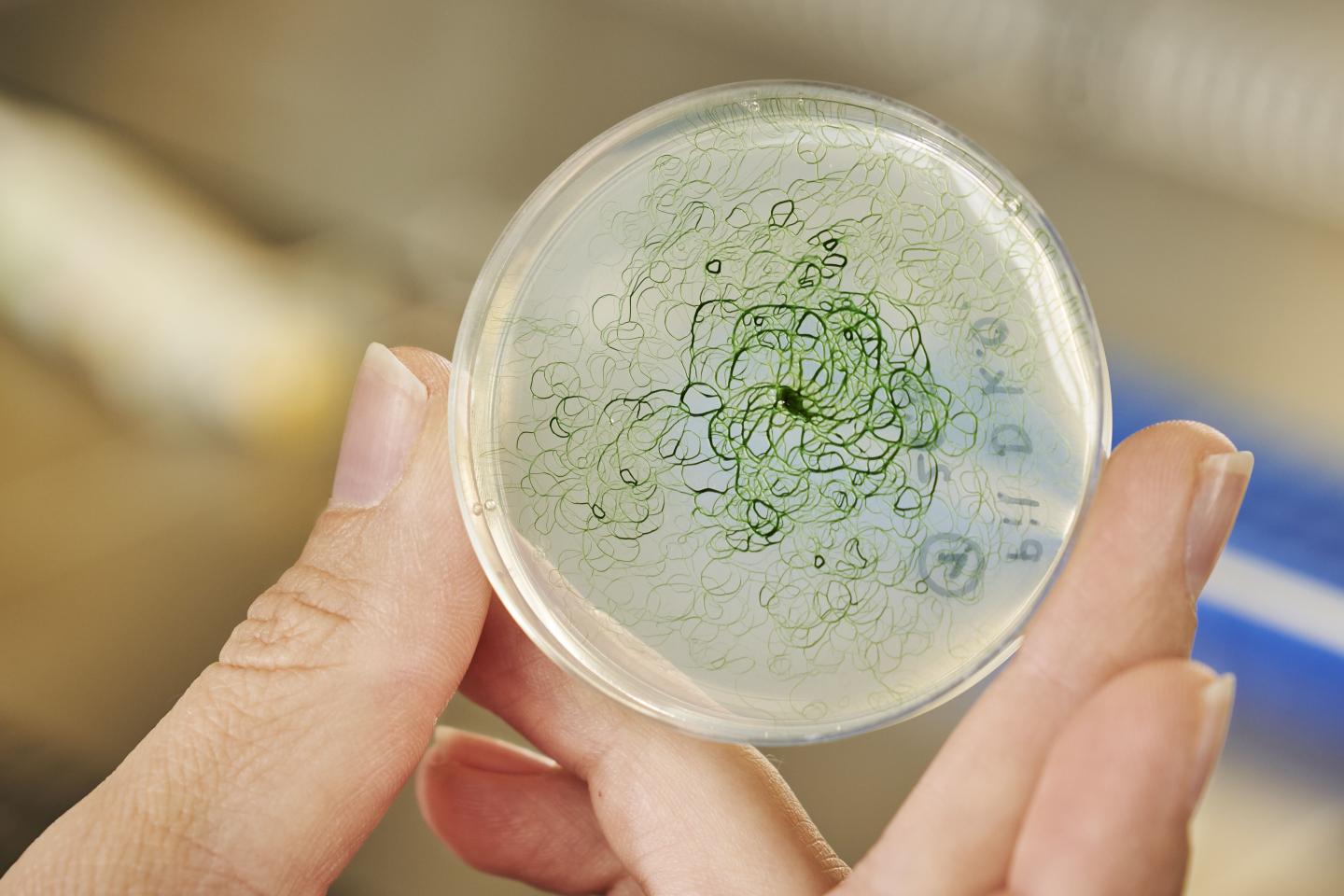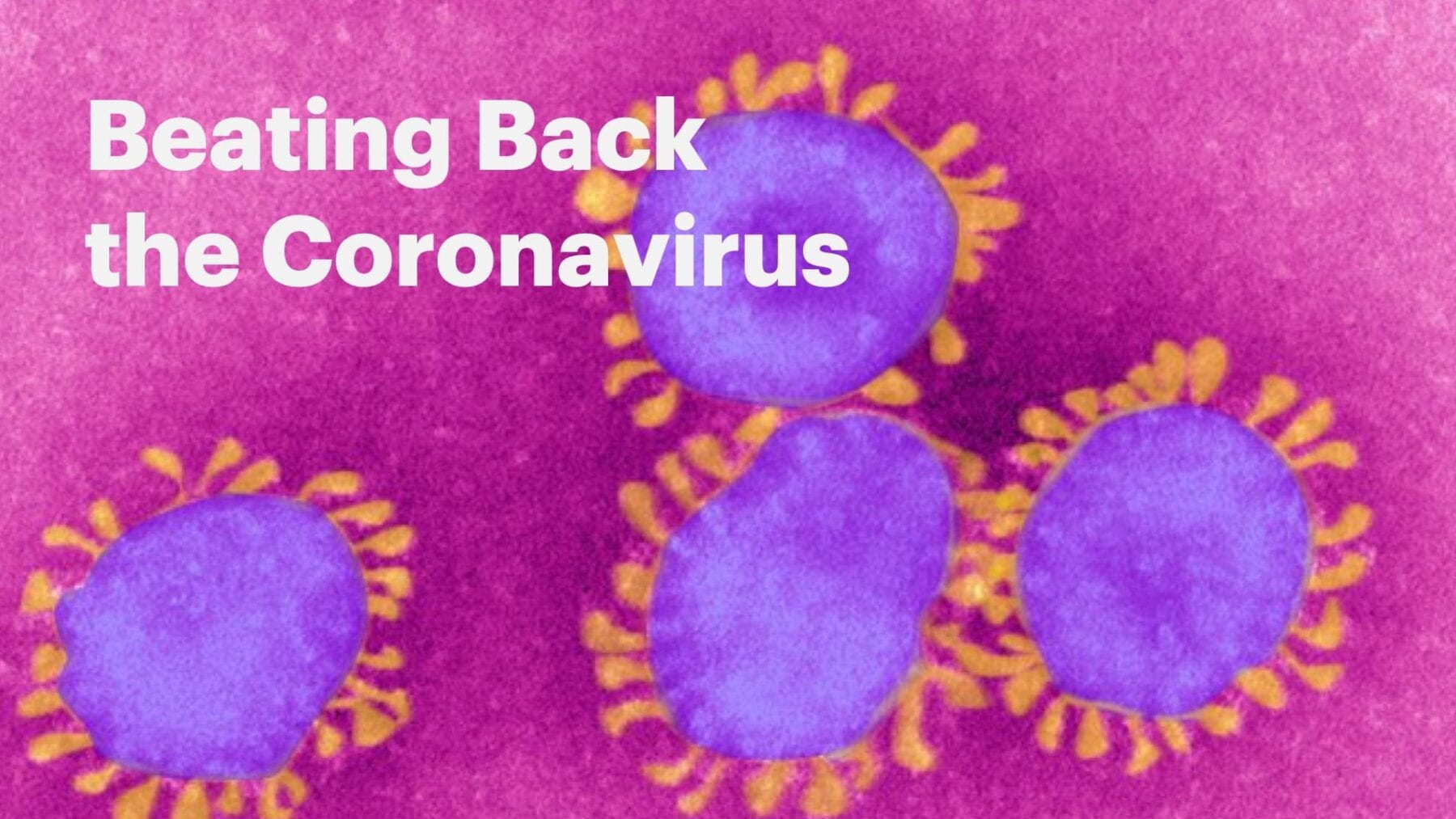
Cyanobacteria producing ethanol or hydrogen – natural gene transfer could make this possible (Photo: Amadeus Bramsiepe, KIT)
Cyanobacteria hardly need any nutrients and use the energy of sunlight. Bathers are familiar with these microorganisms – often incorrectly called “blue-green algae” – as they often occur in waters. A group of researchers at the Karlsruhe Institute of Technology (KIT) has discovered that the multicellular species Phormidium lacuna can be genetically modified by natural transformation and could thus produce substances such as ethanol or hydrogen.
A possible future-oriented application would be to synthesize ethanol, hydrogen or lactate as well as other bioproducts in the cells and thus contribute to the bio-economy and to the change from an oil-based economy to a market economy based on sustainable resources.
The Latest Updates from Bing News & Google News
Go deeper with Bing News on:
Cyanobacteria
- OHA warns of toxic blooms
May 18—As summer approaches, the Oregon Health Authority (OHA) is encouraging people heading outdoors to enjoy Oregon's lakes, rivers and reservoirs to be on the look-out for potentially toxic ...
- Toxic algae blooms hit Inland Empire lakes, threaten people and pets
Officials fight back after advisories are issued at bodies of water in Riverside, San Bernardino and Los Angeles counties.
- Aeration system at Lake Carmi being removed after found to worsen cyanobacteria blooms
After decades of working to find a solution to Lake Carmi's algae blooms, the treatment system installed by the state back in 2019 has only made the problem worse. The state has decided to remove the ...
- Warming temperatures increase risk of water toxins, health officials say
Cyanobacteria is a blotchy bloom that’s identifiable by its green hue coloring that can be found in all freshwater bodies and, in and of themselves, aren’t typically harmful, OHA officials said. State ...
- State to remove Lake Carmi aeration system after determining it made cyanobacteria blooms worse
State officials have decided to begin removing an aeration system in Lake Carmi and may soon move forward with an alum treatment after finding the system actually exacerbated conditions creating ...
Go deeper with Google Headlines on:
Cyanobacteria
[google_news title=”” keyword=”cyanobacteria” num_posts=”5″ blurb_length=”0″ show_thumb=”left”]
Go deeper with Bing News on:
Synthesizing energy from cyanobacteria
- Deep-sea sponge's 'zero-energy' flow control could inspire new energy efficient designs
The Venus flower basket sponge, with its delicate glass-like lattice outer skeleton, has long intrigued researchers seeking to explain how this fragile-seeming creature's body can withstand the harsh ...
- Best Green Energy Stocks
One of the greatest and perhaps cruelest ironies in modern society is that the push for energy security — which often leads to bloody conflicts — overlooks the reality that free energy is all ...
- Bifunctional CoFeP-N nanowires synthesized for sustainable water splitting
Prof. Wang Qi's research group from the Hefei Institutes of Physical Science of the Chinese Academy of Sciences has synthesized iron- and nitrogen-co-doped CoFeP-N nanowires for high-efficiency ...
- Carbon-capture batteries developed to store renewable energy, help climate
Researchers are developing battery technologies to fight climate change in two ways, by expanding the use of renewable energy and capturing airborne carbon dioxide. Researchers recently created and ...
- Synthesis Energy (SYNE) Earnings Dates & Reports
View upcoming earnings forecasts and in-depth analysis of company forecasts.
Go deeper with Google Headlines on:
Synthesizing energy from cyanobacteria
[google_news title=”” keyword=”synthesizing energy from cyanobacteria ” num_posts=”5″ blurb_length=”0″ show_thumb=”left”]










